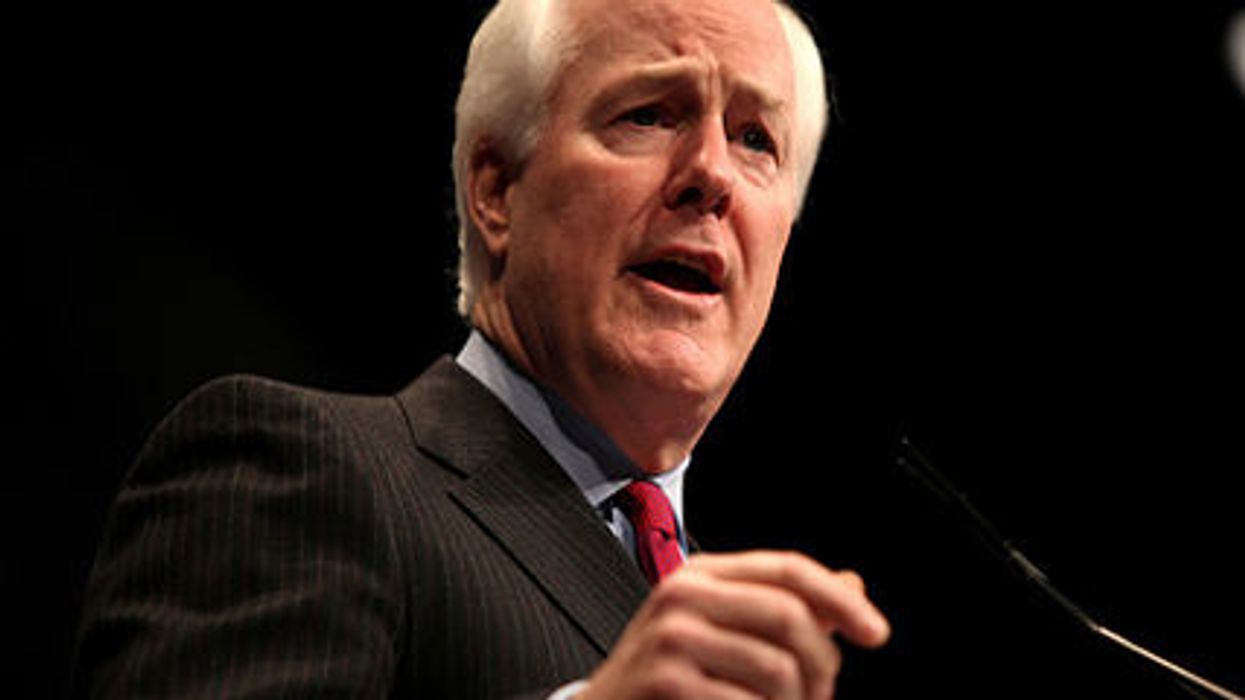Mitt Romney Savagely Mocks Trump's Porn Star Payoff
Sen. Mitt Romney (R-UT) hasn't shied away from criticizing former President Donald Trump in the past. But on Tuesday he gave his frank and candid take on the allegations surrounding the ex-president's ongoing criminal trial.
Trump's attorneys have spent the first portion of the Manhattan trial making their case that the former president is a "family man" who has been unfairly painted in the media as immoral. While speaking to reporters on Capitol Hill, the Utah senator — a fifth-generation practicing Mormon — offered his opinion on that characterization of Trump to CNN congressional correspondent Kristin Wilson.
"I think everybody has made their own assessment of President Trump's character, and so far as I know you don't pay someone $130,000 not to have sex with you," Romney said.
Romney — who was the GOP presidential nominee in 2012 — appeared to be referencing the hush money payment Trump allegedly made to buy the silence of adult film star and producer Stormy Daniels ahead of the 2016 election. Daniels maintains that she and the reality TV star had an affair in 2006, just weeks after Trump's wife, Melania, gave birth to their son, Barron. The former president continues to deny the allegations.
Tuesday's trial proceedings featured the testimony of David Pecker, the former CEO of American Media Inc. — the company that publishes the National Enquirer tabloid newspaper. Daniels' story was part of the so-called "catch and kill" scheme in which Pecker would purchase the rights to certain stories in order to bury them and limit public knowledge. Pecker told prosecutors that he agreed during a 2015 meeting at Trump Tower to be the "eyes and ears" of Trump's 2016 campaign.
One such "catch-and-kill" scheme involved the story of former Playboy model Karen McDougal, who said she had an ongoing relationship with Trump while he was married. When Trump reportedly asked Pecker his thoughts on whether they should pay McDougal, Pecker responded with, "we should take this story off the market.
"And I said, 'it's my understanding that she doesn't want her story published. I think the story should be purchased and I believe that you should buy it,'" Pecker said on the witness stand.
According to the 34-count indictment unveiled by Manhattan District Attorney Alvin Bragg last year, Trump's personal lawyer and "fixer" Michael Cohen made the $130,000 payment to Daniels at the behest of Trump, who then reimbursed Cohen and labeled it as a legal retainer. Cohen has said repeatedly that there was no such retainer, and that the $130,000 was explicitly done to prevent Daniels from going public with her story.
Cohen will be one of the prosecution's key witnesses, and will be expected to guide the jury through the hush money payment process. In 2018, he was handed a three-year federal prison sentence for his role in the scheme, among other crimes.
Jurors were excused at approximately 2 PM ET on Tuesday, and the trial will be paused on Wednesday in observance of the Jewish Passover holiday. Proceedings are expected to resume on Thursday morning, with the defense expected to cross-examine Pecker on the stand.
Reprinted with permission from Alternet.




